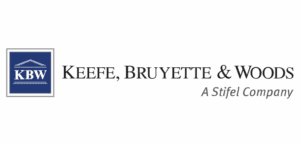CA insurance commissioner announces revisions to speed up rate review process

CA insurance commissioner announces revisions to speed up rate review process | Insurance Business America
Insurance News
CA insurance commissioner announces revisions to speed up rate review process
“Data reconciliation tool” will ensure carriers submit complete filings
Insurance News
By
Kenneth Araullo
California Insurance Commissioner Ricardo Lara is implementing changes to the state’s rate review process by introducing a “data reconciliation tool” to ensure that insurance carriers submit complete filings.
According to an AM Best report, the new tool is designed to streamline the rate review process by reducing delays caused by incomplete filings, which often result in prolonged back-and-forth communication between insurers and the California Department of Insurance (CDI) staff.
Michael Soller, deputy insurance commissioner for communications and press relations, noted that these delays can extend the review process by weeks or months.
The data reconciliation tool is currently in the initial phase of a multistage development process. According to Soller, the first phase is expected to be completed by the end of this year, with the final phase scheduled for completion in 2025.
He also emphasized that state law mandates carriers to submit complete rate filings to ensure a thorough and transparent review process.
Soller said that the new tool will serve as an interface to facilitate the submission process, addressing the urgency in California to update regulatory frameworks that have been in place for decades.
The American Property Casualty Insurance Association (APCIA) supported the introduction of the data reconciliation tool, agreeing with the need to reform the state’s insurance regulatory framework.
Mark Sektnan, APCIA vice president for state government relations, said that long delays in the rate review process, which can average a year or more, are a major factor contributing to the insurance crisis in California. He noted that these delays have created significant market imbalances and limited consumer access to necessary coverage.
The bulletin from Lara also stressed the department’s commitment to the 60-day timeline for rate reviews as established by Proposition 103, which was passed by voters in 1988. Prop 103 also created an intervenor process, allowing carrier rate increases to be challenged. Insurers have argued that this system has contributed to extended rate review timelines.
Lara said that intervenors would now be expected to adhere to the 60-day timeline as well. He pointed out that intervenors sometimes delay the process by challenging rates without being prepared to engage until well after the timeline has passed.
Additional delays arise when intervenors request information that overlaps with work already being conducted by CDI staff and may not be directly relevant to the rate application.
Lara emphasized the importance of accountability, stating that he expects insurance companies to submit complete rate filings and intervenors to follow the established rules without duplicating the work of CDI experts. He also set expectations for his department to conduct transparent and thorough reviews within the timelines set by Prop 103.
Consumer Watchdog, the primary intervenor in California, has disputed claims that its involvement causes delays, arguing instead that its efforts lead to faster reviews.
What are your thoughts on this story? Please feel free to share your comments below.
Related Stories
Keep up with the latest news and events
Join our mailing list, it’s free!






